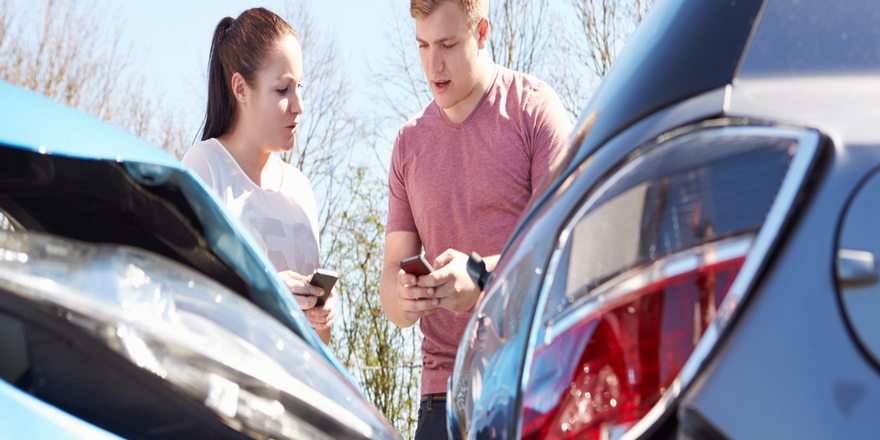
What To Do After an Auto Accident
Nobody expects to have an auto accident. When it happens, we are likely to make poor decisions on the spot due to any combination of surprise, shock, and fear. This is a natural human response. The best thing for any driver to do is to remember these keys to auto accident preparedness. Then, they will never be caught off-guard.
#1: Do not leave the scene
Even for the most minor fender-bender, it’s possible that the other party could tell you to drop it, then after you drive off you find out they copied down your license number and told the police you were a hit and run. Scammers prey on unaware drivers this way.
#2: Call the police
Even if there are no serious injuries, having the authorities present is always a good idea. If you have to file a claim for damages, your insurance company will require a copy of the police report. Lacking that, police involvement prevents the other party from making false claims against you later.
#3: Manage the accident scene
The vehicles involved should remain in place unless they are obstructing traffic. In cases of extensive damage, you shouldn’t risk moving a vehicle anyway since that can cause further damage. Keep your emergency flashers going and if you have flares, deploy a couple in the road to warn other drivers to avoid the scene. Remember that the accident scene is now evidence, which could show up in court testimony.
#4: Make an accurate record of the events of the collision
Do not speculate or guess at what you do not know, while carefully noting what you do know. Report this to the officer. You would also do well to jot down your own story of how events unfolded, as officers making reports have been known to misstate some details. Do not make assessments of the state of your injuries, because after an accident your body is pumping endorphins and adrenaline, which can mask the pain of injuries. It is not uncommon to not notice symptoms of whiplash until hours after the accident. Note the weather and environmental conditions. Since fault can be assigned in the outcome of the case, you should note if it was foggy, raining, icy, snowing, or dark.
#5: Take pictures
A picture is worth a thousand words and several pages of description in an insurance report or court testimony. If you have visible injuries, take pictures of those as well. Of course, do not allow your photography to interfere with the police investigation. You can wait until police are done before recording photos of the scene.
#6: Exchange information
If police are unavailable, you and all other drivers of whatever vehicles are involved should trade names, contact information, and insurance information. If police are present, they do this and then you can obtain a copy of the accident report.
#7: Notify your insurance company
Most policies require immediate reporting. Try to find out from the insurance company whether medical benefits come with your coverage policy. If so, they become your primary medical insurer until their period runs out and your regular medical insurance covers you from there.
#8: Seek medical attention
Do not, under any circumstances, assume that you are not injured. Accident-incurred injuries may take days to become apparent. Check into the nearest emergency room clinic. Even in a minor accident, injury to your spinal cord can be a factor. If you lost consciousness or felt dizzy and disoriented at any time during the accident, this could be a sign of brain injury, which can happen even without visible head contusions.
#9: Get a mechanic to check your vehicle
Even with no exterior damage to the car, there is always the possibility that the impact jolted something loose. Damaged or disconnected sensors, wiring, or vacuum lines within the vehicle could make further driving dangerous.
#10: Keep all related documents on file
Medical records, insurance records, the police report, mechanic’s report, and all other documents associated with the incident should be in one place. If you had to rent a rental car while your vehicle is being repaired, save the receipt from that. Any expenses incurred from the accident should be noted.
#11: Seek legal help
After following all the above steps, seeking consultation with a car accident attorney is advisable. You may not want to pursue legal action, but that doesn’t mean the other party won’t. If you have a claim for injuries, personal injury attorneys typically work on a contingency basis, meaning you don’t pay them unless they obtain a settlement for you.
According to auto insurance companies, the average driver will be involved in an accident once every 18 years. No matter how careful of a driver you are, the odds are certain that an accident or two can happen to you eventually. Drive safe out there, and be prepared for the unexpected.






